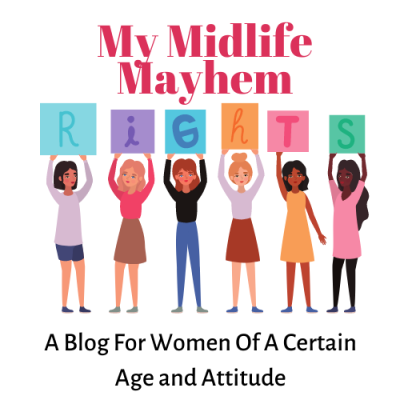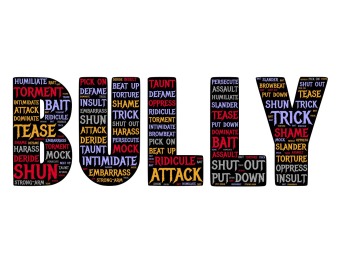 So much negativity surrounds people with ADHD and that judgement can be paramount to their poor self-esteem. But something no-one can take away from the ‘differences’ in their mindset is their relentless enthusiasm for life, when they aren’t reeled in by the constraints of a society that is at odds with their strengths and personality type.
So much negativity surrounds people with ADHD and that judgement can be paramount to their poor self-esteem. But something no-one can take away from the ‘differences’ in their mindset is their relentless enthusiasm for life, when they aren’t reeled in by the constraints of a society that is at odds with their strengths and personality type.
While it’s true that his mood swings can change within the blink of an eye, it is rare for my son not to have a big grin plastered on his face, and sometimes I wonder if he lives in an alternate universe where it’s possible to glaze over the daily pressures of life and file them away for another day.
Fortunately, (or unfortunately), many people like him who have ADHD and live in the moment, suffer from other conditions as well – called co-morbidities – so while my son might be that full-time nutter that everyone dares to do crazy stuff, ( because he will), like Richard Branson or Robbie Williams – his anxiety reins him in… sometimes.
Kurt was away last week on his first holiday with mates.
Many of you, who have followed our journey with our son, will understand that those seven days marked a pivotal moment for us in his development, somewhere close to graduation in a normal kid’s life, because the stepping-stones are very different with these types of kids.
For all his bravado about the trip the week before he left, he called me at the airport when he arrived, then again when he was seated on the plane, and then the minute he arrived in the baggage hall.
‘You don’t need to call me every five minutes,’ I said crabbily, after the fifth call in two hours, while I was still trying to separate my own mixed emotions of anxiety for him and the freedom from stress for a week that were battling in my chest.
‘I’m not sure what the fuck I’ve done?’ he replied bleakly, on the other side of an adrenaline hit that had got him through his fear of flying, and now confronted by the realisation that he was away, on his own, with four equally irresponsible mates for a week.
Their stay was to be an interesting life lesson for him, with no-one to clear away the dinner plates and beer bottles from the night before, hang up wet swimmers and towels. Then there would be his own personal discoveries that not all people have the same high standards when it comes to hygiene as his OCD temperament demands, or that some snore.
Inevitably, he’d spent his budget for the week within 24 hours. Money management is a tricky old thing for any young adult to learn, but more so when you are naively impulsive, have no fear of consequences and find it impossible to plan ahead.
Hence, he bought a tee-shirt as soon as he got there, because that’s exactly what you do when you’re on a really tight budget with barely enough money for food and drink. He did remember to contribute to the household food shop, which was lucky, because I knew his friends would feel zero fucks if he lay starving on the floor in front of them “Trainspotting-style”.
He paid for the holiday out of his first real earnings and I’m proud of him for that. He organised it with his friends without any input from us, from the planning stage through to the well-timed negotiation session with us to borrow the last wedge of cash he needed, and sat patiently through the final negotiations as the old man formalised his contract with us detailing terms of interest and repayment deadlines.
He booked his own flight – at the last minute and under the influence – thereby incurring $100 of unnecessary extra costs to choose his seats, (next to the emergency exit), and to increase his baggage allowance to 20 kgs – slightly excessive for a few tee shirts and a pair of swimmers, I thought, but another life lesson learned.
Life Rule Number 1: Never make important financial decisions when you’re drunk.
The silence was golden in our house for those seven glorious days, although I missed the puppy dog radiant energy and unflappable enthusiasm that Kurt brings to it, even when his chips are so far down the swanny that the average man would cave in.
The next stage of the growing up process lay waiting for him at home, where a fine for illegal entry onto a train without a ticket has sat on the old man’s desk for weeks, tormenting him rather than Kurt.
Our son’s defiant disregard for ‘the system’ is one to be applauded if you’re a liberal like me, and only when it was explained to him that his refusal to pay could result in dire consequences to his credit history, he said he’d think about it; prompting the old man to have a mild panic attack. How can our kids turn out so different to us? $200 is no small sum, and could have kept him in fags for a few weeks.
I feel for him, because not only has he been forced to learn about responsibility, but he’s also learning the sad acceptance that perhaps he won’t be the one to change the world after all.
We were all anti-establishment once upon a time. Well…apart from the old man.
Fortunately for Kurt, tomorrow is always another day.










 For those of you who read my posts for my input on ADHD, I discovered the most fantastic read on
For those of you who read my posts for my input on ADHD, I discovered the most fantastic read on 


